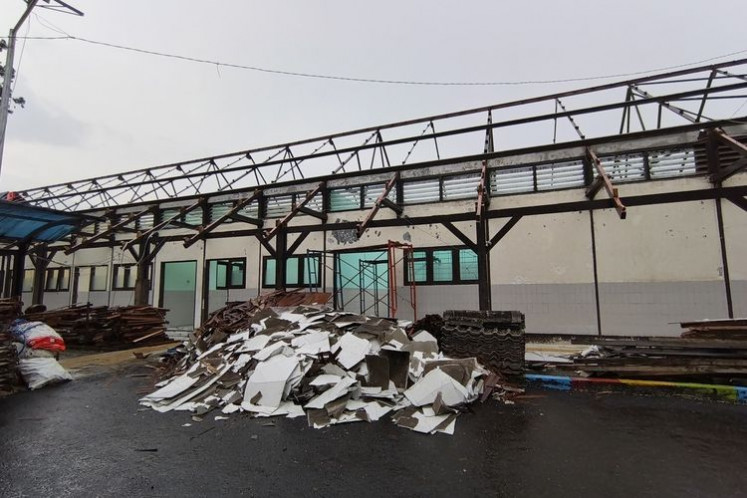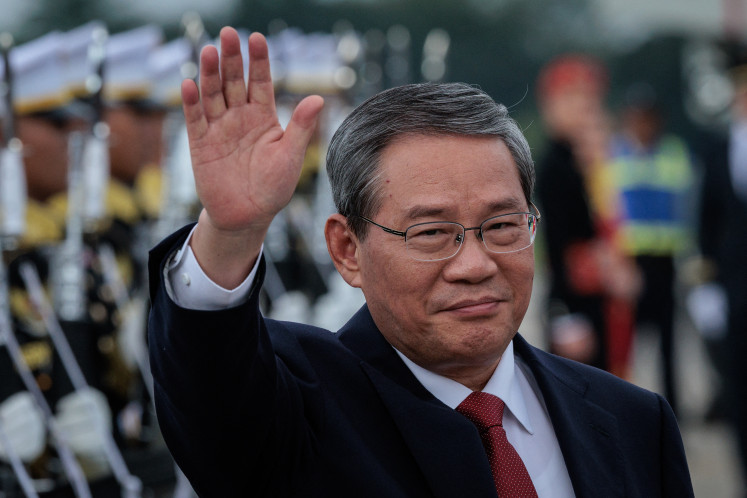Checks and balances, the Omani way
Oman is an absolute monarchy ruled by a sultan who is not only the head of state but also the head of government
Change text size
Gift Premium Articles
to Anyone

Oman is an absolute monarchy ruled by a sultan who is not only the head of state but also the head of government. The current ruler, 74-year-old Sultan Qaboos, also serves as supreme commander of the armed forces, prime minister and minister of defense, foreign affairs and finance. The sultan appoints a Cabinet to assist him in the management of the country's state affairs.
All legislation since 1970 has been propagated through royal decrees, including the 1996 Basic Law of the State ' considered the Omani Constitution. The sultan appoints judges and can grant pardons and commute sentences. The sultan's authority is inviolable and he expects total subordination to his will.
Despite the sultan's dominant power in every aspect of life of the Omani people, there is a system of checks and balances in place in the Persian Gulf nation, though it is still limited in practice. In response to a series of protests by the Omani people in 2011 when a revolutionary wave spread across Arab countries, the sultan introduced a package of social, political and economic reforms that were meant to meet protesters' demand for reform.
One significant breakthrough was the establishment in 2011 of Majlis Oman (the Council of Oman) with its twin councils ' the State Council and the Shura (Advisory) Council. Members of the State Council are appointed by the sultan from among distinguished Omani citizens with the highest levels of expertise, while members of the Shura Council are directly elected by citizens as representatives of their wilayats (electoral districts).
The legislative and regulatory powers granted to the Council of Oman have made the institution more capable of expressing the people's aspirations and paved the way for them to participate more in the country's decision-making process. As an example, the first article of a royal decree issued in March 2011 grants the Council of Oman legislative and regulatory powers in accordance with the provisions of the Basic Law of the State, while the second article regulates that a technical committee of specialists shall be formed by royal orders to draft a project to amend the Basic Law of the State in a manner that realizes the provision of Article 1 of the decree.
Under these legislative and regulatory powers granted to the Council of Oman, the chairpersons of the State Council, Shura Council and Supreme Court and its two longest-serving deputies are to be brought into the Defense Council when it meets to confirm the name of the individual who will accede to the throne.
The State Council plays a vital role, not only in the field of comprehensive national development but also in the development of Omani society in line with the goals and objectives set forth by the sultan. The council has the prerogative to approve or amend draft laws forwarded to it by the Council of Ministers, propose or approve the drafts of new laws, revise or amend existing laws, discuss and issue recommendations on drafts of development plans and the annual state budget as forwarded by the Council of Ministers, and review a copy of the annual report submitted by the State's Financial and Administrative Audit Institution.
The State Council consists of the council chairman, council office, standing committees and secretariat-general. The chairman oversees the work of the council, represents it in its dealings with other bodies and speaks on its behalf. He has two deputies who are directly elected at the beginning of each council term.
The State Council Office prepares the council's agenda and decides on its sittings, as well as the work of its committees. It assists members in performing their duties and also helps the council committees, as well as drafts the regulations organizing the management of their tasks and coordination therein in accordance with the council's bylaw.
The State Council has six standing committees: the legal committee, economic committee, human resources development committee, culture and media committee, education committee and social committee.
Meanwhile, the election of the Shura Council chairman from among the council members represents a true implementation of the new powers granted to the council. The Shura Council has the prerogative to participate in studying draft state budget projects, five-year development plans, economic and social agreements signed or intended to be signed by the government and question ministers of civil portfolios about instances of exceeding their prerogatives in breach of the law.
In regard to ministers' performance, the Shura Council has the right to summons any of them to present statements on specific matters within their ministries, which will then be debated.
Members of the Shura Council represent the sultanate's 61 wilayats and are elected by the public in a general election. A wilayat is represented by two members if it has a population of 30,000 or more and is represented by one member if its population is less than 30,000. For each of the council's terms, the wilayats are classified according to population and a decision to that effect is issued by the interior minister.
The roles played by and the prerogatives granted to the twin councils of the Council of Oman indeed showcase the presence of a checks and balances mechanism in Oman's legislative system. It is not yet perfect as there are still reports of clientelism, tribal or ethnic affiliations, irregularities and allegations of vote-buying by candidates of Shura Council membership ahead of the general election.
There is promising development, however, as a number of elected Shura Council members have shown their commitment to empowering the chamber and increasing its position and prerogatives in the general balance of powers, although this trend remains embryonic, given the strong opposition of the executive branch.
Perfection cannot be achieved overnight. There is still plenty of time to achieve such a goal.
' From various sources









